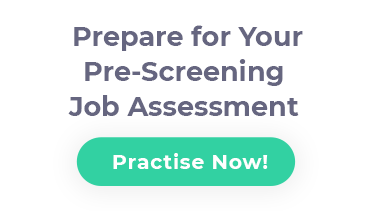Linklaters Recruitment Process, Assessment Day, Interviews, Watson Glaser Test & SJT Online Preparation – 2025

What Is Linklaters?
Linklaters is a global law firm headquartered in London, England. Since 1838, Linklaters has been one of the most prestigious law firms in the UK with this reputation eventually expanding to over twenty countries. Linklaters currently has over thirty offices and employs above 5,100 lawyers.
Linklaters’ lawyers work on high-profile cases and enjoy benefits such as:
- 22 Paid Vacation Days
- Medical, Vision, and Dental Insurance
- Domestic Partner Benefits
- And More
What Is Linklaters’ Hiring Process?
Linklaters keeps their quality reputation in place by only hiring high calibre lawyers to join their team. This makes their hiring process both rigorous and competitive. There are about four different stages that assess the cognitive capacity and behaviour of each candidate. Linklaters’ hiring process includes these four steps:
- Application
- Online Assessments
- Telephone Interview
- Assessment Day
Application
Linklaters’ application takes about ten to twenty minutes to complete. A cover letter, transcripts, and resume must be submitted alongside the application. The application may also host questions about past work experience, case studies, or relevant accomplishments.
Linklaters Online Assessments
Linklaters uses online psycohmetric tests to objectively measure the temperament and aptitude of the applicant. The online aptitude tests are sent in an email with the specification that they must be completed in three to five days. It is preferred that the tests are finished sooner rather than later.
Linklaters uses two assessments to evaluate candidates. One is a behavioural assessment and the other is a reasoning assessment. Linklaters has benchmarks in place that require a certain score on these tests. Those who fail to meet the benchmarks will not proceed to the next stage of the interview process. Linklaters’s online assessments are:
- Situational Judgment Test (SJT)
This is a behavioural assessment that appraises the test taker’s emotional intelligence in the workplace. The SJT will present a variety of hypothetical scenarios from conflicts to everyday conversations that are common in a work environment. Subsequently, there will be a reaction to the scenario. The test taker must mark how appropriate the response was and whether they would respond in the same way. There are about fifteen total scenarios.
- Watson Glaser Critical Thinking Test
The Watson Glaser critical thinking test consists of five subsections. These sections are logical interpretation, argument evaluation, recognising assumptions, drawing inferences, and deductive reasoning. The sections will provide a brief passage followed by a statement. The objective is to evaluate the statement and its relationship to the passage for an accurate resolution. The questions are multiple-choice and timed. Those who are successful on the Linklaters’ Watson Glaser critical thinking test will have to take it again in person during a later stage.
- Linklaters Capp Test
Telephone Interview
Candidates who received satisfactory marks on Linklaters’ online assessments will proceed to the third stage of the interview process: the telephone interview. This interview can last up to ninety minutes, or it can be as short as twenty minutes. It all depends on Linklaters’ questions and interest in the candidate.
The telephone interview typically begins with questions about the candidate’s resume and education. Candidates should have their resume on-hand for this interview. Next, there are a handful of competency-based questions and possibly some hypothetical scenarios in which the candidate must advise a client. Common questions during this stage of Linklaters’ interview process include:
- What type of law are you interested in practising?
- What is an area of stress for you when working?
- Are you able to work long hours on a case?
- Describe a time when you were a member of a team.
Linklaters Assessment Day
The assessment day, also known as an assessment centre, is the final stage of Linklaters’ hiring process. Very few candidates are invited and the activities during assessment day are very competitive. The assessment day is held at one of Linklaters’ main offices and lasts for about four hours.
The day begins with introductions to some of the staff, information on the company, and a tour of the office building. After this part of the assessment day is over, the activities and interviews will begin.
Candidates will partake in an in-tray exercise. This is basically a simulation of the day-to-day activities that candidates would have to manage if they were hired. Initially, the participant will have to sort through a handful of emails. As the exercise continues, more emails will arrive that must be sorted as well. This exercise examines the candidate’s ability to prioritise information both accurately and efficiently. The key is being able to find a pattern in the emails.
Next, the candidate will have to write a detailed reply to one of the emails they marked as important. In the response, all of the points brought up in the original must be acknowledged and a course of action should be proposed.
During the assessment day, there are two interviews. One with a hiring manager and the other with a senior lawyer at the firm. The interview with the hiring manager involves competency-based questions. Candidates will have to discuss past experiences, accomplishments, and mistakes with the representative.
The interview with the senior lawyer includes a variety of job-specific questions. The interviewer will ask about areas of the law, commercial awareness and industry knowledge, and critical thinking skills. Additionally, the interviewer will bring up the candidate’s performance on the in-tray exercise and inquire about the choices they made regarding the emails.
After assessment day, candidates will hear back about an offer or their standing with the company in about a week or so.
How to Prepare for Linklaters’ Online Assessments?
Linklaters’ online assessments are no walk in the park. With the stringent time constraints and difficult questions, candidates usually find this stage among the hardest in the interview process. Fortunately, there are plenty of resources to help you prepare for these tests.
The Watson Glaser critical thinking test can be prepared for with the aid of practice tests. Online practice tests provide a testing experience that closely replicates the genuine assessment. This means you’ll get to navigate the questions, get a feel for the layout, and practice the material beforehand allowing you to optimise your score. Another attractive benefit is the chance to find a pace that works for you. This will make working under the time constraints much easier. You also get to see your results on the test. Your score on the practice tests acts as an indication of how you will do on Linklaters’ critical thinking test.
Preparing for the Linklaters’ situational judgment test is a different story. There are no definite right answers to the test, only the answers that Linklaters prefers. The best way to prepare for the SJT is by using sample questions and reviewing Linklaters’ company values. By doing this, you can outline an answer and incorporate their values. Then, when you are taking the SJT, you can choose the answers that closely align with the company values and your idea of an appropriate response. Linklaters’ values are:
- Excellence
- Respect
- Integrity
- Initiative
- Teamwork
Linklaters’ Common Interview Questions
During your interview, the interviewer will ask questions meant to show how well you embody the Linklaters firm’s core values. Be prepared with detailed answers and treat each question as a chance to demonstrate the skills you bring to the table. These are some questions you may be asked during your interview.
- What appeals to you about working for a firm like Linklaters?
- What is the most challenging thing you have faced in your career so far? How do you think that has prepared you for a position with Linklaters?
- Even close colleagues can have conflicts. If you had a conflict with a Linklaters colleague, how would you go about resolving it?
- Linklaters handles quite a few large accounts. Sometimes your boss may not realize how much work they have delegated to you. What would you do if you have been given a workload that you feel is more than you can reasonably handle?
- Which qualities do you think are most important for success in a large firm like Linklaters?
Linklaters Interview Tips
Before your interview with Linklaters, it is very important that you do background research on the company. The interviewers will ask a handful of questions about your knowledge of the company and some specifics on the different areas of the law.
A bulk of questions will cover Linklaters’ key competencies. You should have examples prepared detailing how you exhibit these traits. Linklaters’ key competencies are:
- Teamwork
- Imagination
- Determination
- Commercial Judgment
- Excellence
- Integrity
Questions about these competencies are typically formatted as follows: “Describe a time you showed determination” or “would you compromise quality to meet a deadline”. When answering these questions, try using the STAR method (situation, task, action, result) to organise your response.
Lastly, there are some general questions that Linklaters asks. Have answers prepared for the following questions:
- Why are you interested in Linklaters?
- What motivates you?
- How do you think you will perform in this role?
- What are some deals made by Linklaters in the past year?
- What makes you the perfect candidate for this role?
As long as you have spent a generous amount of time preparing for Linklaters’ interview process, you should do great. Just remember that Linklaters is looking for a candidate who is motivated, has great time management and communication skills, and is eager to be apart of a team. Best of luck!

